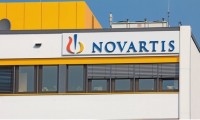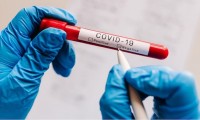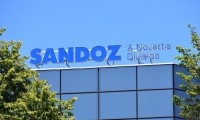-
Novartis Shareholders Approve Sandoz Spin-Off as Product Plans Increase
- Source: drugdu
- 129
- September 19, 2023
-
Bristol Myers Squibb reveals plans to double number of drugs in registrational trials
- Source: drugdu
- 101
- September 19, 2023
-
ICON partners with US Government for clinical trials of Covid-19 vaccines
- Source: drugdu
- 123
- September 18, 2023
-
BMS Culls Two Mid-Stage, Four Early-Stage Clinical Programs
- Source: drugdu
- 206
- September 16, 2023
-
AbbVie’s Skyrizi Outperforms J&J’s Stelara in Late-Stage Crohn’s Disease Trial
- Source: drugdu
- 110
- September 15, 2023
-
Seagen and Nurix announce oncology partnership worth over $3.4bn
- Source: drugdu
- 107
- September 14, 2023
-
Gilead’s Trodelvy Shows Potential as First-Line Treatment in NSCLC
- Source: drugdu
- 254
- September 13, 2023
-
Moderna, Pfizer-BioNTech’s Updated COVID-19 Vaccines Approved by FDA
- Source: drugdu
- 233
- September 13, 2023
-
Coherus acquires immuno-oncology company Surface
- Source: drugdu
- 207
- September 13, 2023
-
Sandoz partners with Samsung Bioepis to license Stelara biosimilar
- Source: drugdu
- 103
- September 13, 2023
your submission has already been received.
OK
Subscribe
Please enter a valid Email address!
Submit
The most relevant industry news & insight will be sent to you every two weeks.













